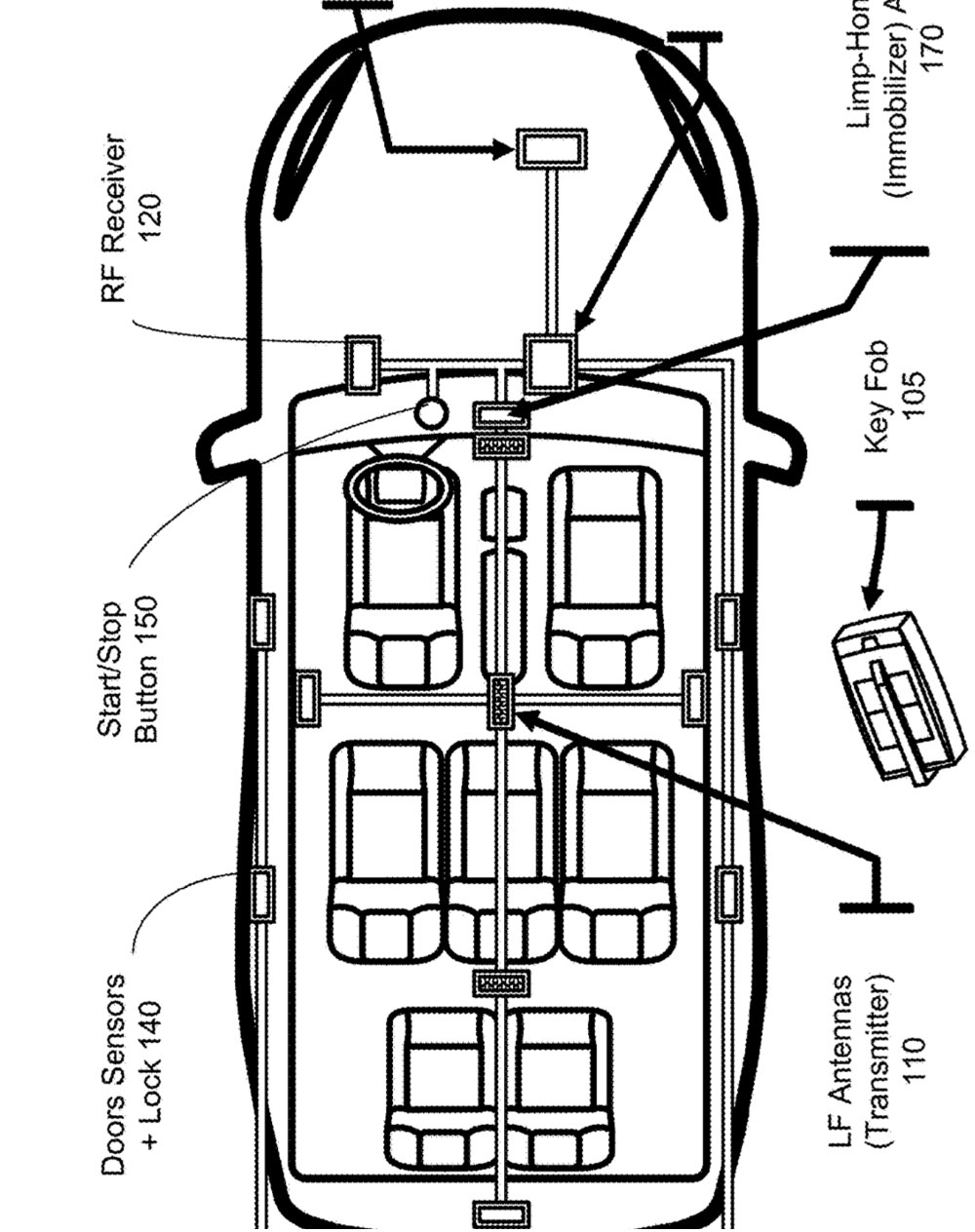Let the Apple Car rumors roll on. Apple has filed for a patent (number 20190297457) for “enhanced automative passive entry” that would provide iPhones and Apple Watches with advanced interactivity with a vehicle.
In the patent filing, the tech giant notes that modern cars allow entry using a key fob, and some cars allow starting by a button when the key fob is inside the car. Such operation is called passive entry and passive start, which use a position of the key fob to unlock the car, allow starting the car, and provide other functionality. The location of the key fob is determined using magnetic signals emitted from magnetic antennas in the car. The magnetic signals are measured by the key fob and sent to the car for determining a location of the key fob.

Apple says that, however, the key fob can be bulky and be an additional item that a user must carry. What’s more, the magnetic fields are short range, and current techniques are susceptible to hackers, which can allow a thief to access the car and potentially steal it. For these reasons Apple says it’s “desirable” to provide new methods and devices that overcome any one of these problems.
Here’s the summary of the patent filing: “Methods and devices are provided for allowing a mobile device (e.g., a key fob or a consumer electronic device, such as a mobile phone, watch, or other wearable device) to interact with a vehicle such that a location of the mobile device can be determined by the vehicle, thereby enabling certain functionality of the vehicle.
“A device may include both RF antenna(s) and magnetic antenna(s) for determining a location of a mobile device relative to the vehicle. Such a hybrid approach can provide various advantages. Existing magnetic coils on a mobile device (e.g., for charging or communication) may be re-used for distance measurements that are supplemented by the RF measurements. Any device antenna may provide measurements to a machine learning model that determines a region in which the mobile device resides, based on training measurements in the regions.”
Of course, Apple files for — and is granted — lots of patents by the U.S. Patent & Trademark Office. Many are for inventions that never see the light of day. However, you never can tell which ones will materialize in a real product.
